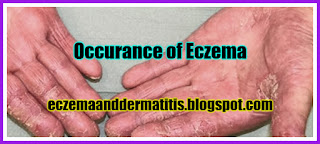Nummular Eczema
Nummular eczema (nummular dermatitis) is a type of eczema typically categorized by coin-shaped patches on the skin. Often the center is clear or pale (and often scaly) with a red or irritated edge and like regular eczema it is usually quite itchy. The cause is still unknown as to why some people get it and others don’t.
More common in winter, nummular eczema is most often associated with skin dryness and can easily be irritated by soaps and detergents. While it can be difficult to avoid detergents all together if you do handle them make sure you are wearing gloves that are waterproof and rinse well.
While there is still no cure for nummular eczema there are a number of treatments that you can do to help reduce or control the condition that include both prescription medicine and at home remedies.
Most doctors will prescribe cortisone creams that you apply to the skin once per day. While this is usually effective short term, it isn’t or shouldn’t be used for extended periods of time as cortisone creams do have some health risks with long term use.
Very often you will have to take antibiotics as well as this type of eczema is prone to staph infections. If you do have to take antibiotics you should try and supplement your diet with probiotics to get the good bacteria back into your body.
For general treatments make sure you keep the skin moisturized and reapply a few times during the day. When bathing make sure you use lukewarm water and try and avoid soaps and detergents if at all possible. Cetaphil can be used instead of soap in severe cases because it doesn’t dry out the skin.
Use cotton clothing and bedding and avoid polyester blends which can cause the skin to sweat and may aggravate the condition even worse.
Source: eczema-remedies.com/nummular-eczema.html
More common in winter, nummular eczema is most often associated with skin dryness and can easily be irritated by soaps and detergents. While it can be difficult to avoid detergents all together if you do handle them make sure you are wearing gloves that are waterproof and rinse well.
While there is still no cure for nummular eczema there are a number of treatments that you can do to help reduce or control the condition that include both prescription medicine and at home remedies.
Most doctors will prescribe cortisone creams that you apply to the skin once per day. While this is usually effective short term, it isn’t or shouldn’t be used for extended periods of time as cortisone creams do have some health risks with long term use.
Very often you will have to take antibiotics as well as this type of eczema is prone to staph infections. If you do have to take antibiotics you should try and supplement your diet with probiotics to get the good bacteria back into your body.
For general treatments make sure you keep the skin moisturized and reapply a few times during the day. When bathing make sure you use lukewarm water and try and avoid soaps and detergents if at all possible. Cetaphil can be used instead of soap in severe cases because it doesn’t dry out the skin.
Use cotton clothing and bedding and avoid polyester blends which can cause the skin to sweat and may aggravate the condition even worse.
Source: eczema-remedies.com/nummular-eczema.html












